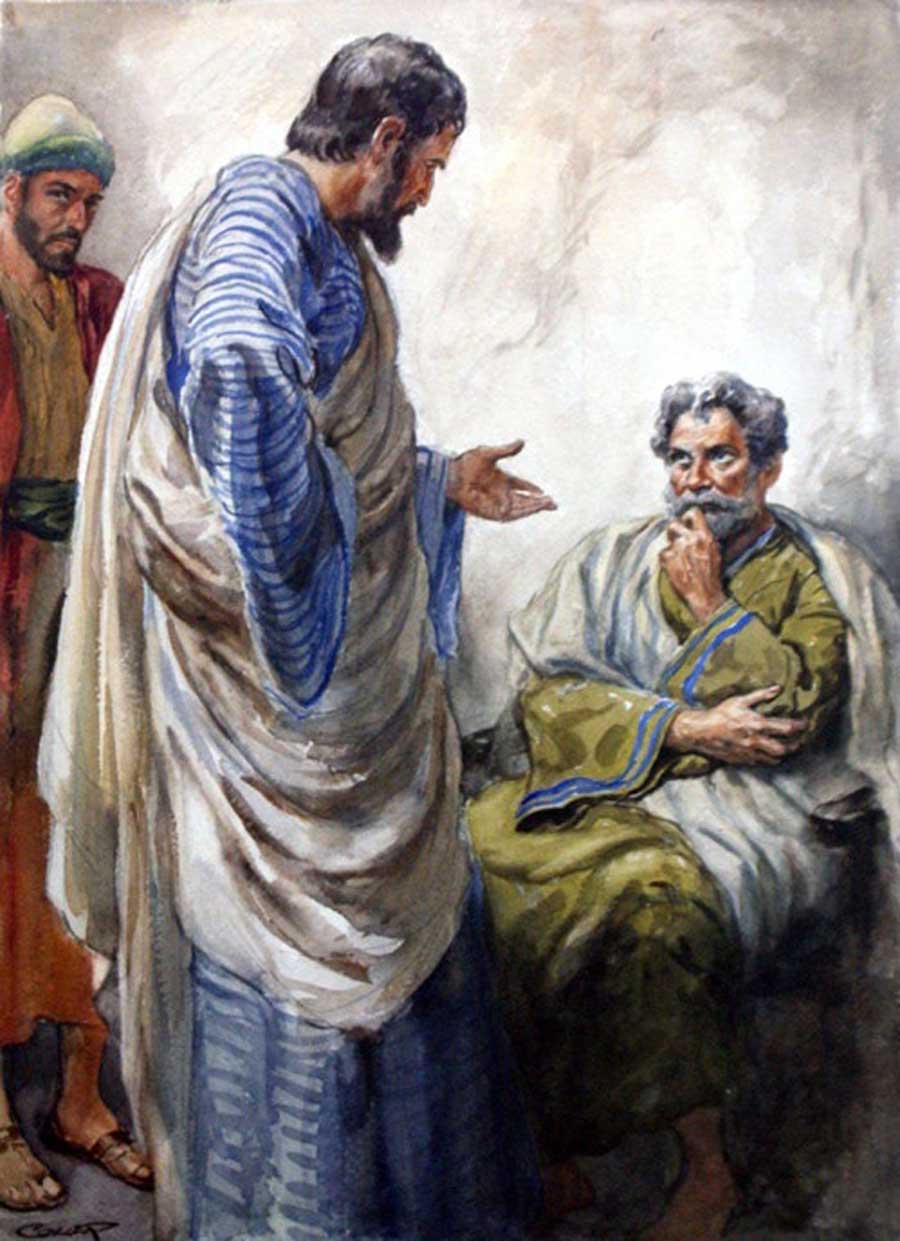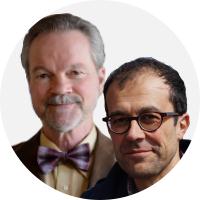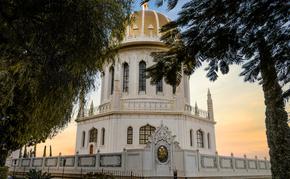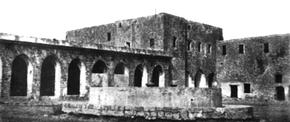The views expressed in our content reflect individual perspectives and do not represent the authoritative views of the Baha'i Faith.
Did you know that Ancient Antioch is where the followers of Jesus Christ were first called “Christians?”
The New Testament itself reports this very fact: “And the disciples were called Christians first in Antioch.” – Acts 11:26. Many scholars think that Antioch is where the Gospel of Matthew was probably written.

Peter and Paul in Antioch
Prior to this, people called Christians other names. One of these terms of reference was the Jewish “sect of the Nazarenes:” as in Acts 24:1: “For we have found this man [Paul] a pestilent fellow, and a mover of sedition among all the Jews throughout the world, and a ringleader of the sect of the Nazarenes.”
The people of Antioch, you see, were famous for “nicknaming.” Sometimes a nickname catches on, and “sticks”—and so it happened that the “nickname” of “Christians” then became the standard brand of self-identity for Christians, and has ever since.
In fact, many early Christian traditions embellish or add to what the New Testament has to say about early Christianity. Let’s take ancient Antioch as an example.
In Late Antiquity, Ancient Antioch was a Hellenistic—largely Greek-speaking and predominantly Greek-cultured—city-state known as “Antioch-on-the-Orontes.” In its heyday, its population may have swelled to half a million people.
Now ruins, “Antioch-on-the-Orontes,” which was in ancient Syria, is near Antakya, a city in southeast Turkey, just 12 miles from the Syrian border. The ruins of Antioch—the ancient city walls—are not only near Antakya, but are buried beneath modern Antakya as well. Antakya is home to “the Cave Church of St. Peter,” also known as the Grotto of St. Peter, which may well be the oldest church in the world. (The co-author of this essay, Necati Alkan, is from Antakya.)
These early Christian narratives offer a treasure trove of wisdom. We even find one of these legends retold in the Baha’i writings:
Consider the story of Simon the Rock [Peter]: Two of the Apostles of His Holiness, the Spirit [Jesus], went to the city of Antioch to teach the Cause of God. Upon their arrival they began to preach and talk. The people who were unaware of divine matters were dismayed and seized by fear. This dismay and fear resulted in the imprisonment and persecution of the Apostles. So the people remained uninformed of the details of the message and the way of association and fellowship was barred. – Abdu’l-Baha, Provisional translation by Necati Alkan, Ph.D.
So Peter traveled to Antioch to preach the Gospel of Jesus Christ. Here, Peter is a successful — and a wise, clever and resourceful — Christian missionary, who is well-received. But his two Christian companions, who went to Antioch before Peter, were thrown into prison. So what did Peter do? Abdu’l-Baha continues:
And when this news reached Simon the Rock, he went to that place. As soon as he arrived, he associated and mingled with the people and won the affection of the notables. In a short while he became widely known for his uprightness, devoutness, piety, and the exposition of human virtues and a refined character. He became friends with the king of that land. And when the king completely confided in and was convinced of him, one night mention was made of the Apostles. The king said that two ignorant and unwise souls arrived some time ago in this city and uttered words full of mischief and that therefore he had them chained.
Simon the Rock expressed his wish to meet them. – Ibid.
Now see what happens next, according to Abdu’l-Baha:
When they were brought forward, out of his wisdom he pretended not to know them. He asked them who they were and where they came from. They replied that they were servants of the Spirit of God and came from Jerusalem. He asked who the Spirit was and they said that He was the Promised One of the Torah and of all the peoples. – Ibid.
At this point, Peter had to be very careful not to be associated with these two Christians, whom the people of Antioch, including the king, had come to regard and despise as scoundrels. So what did Peter do next?
Then, in a manner of opposition, he asked about minor and major subjects and disputed with them. From the very questions they understood how to reply. Briefly, thus he referred to all the doubts of the people one by one and they replied to them. Some of the answers he accepted but others he refused so that the people did not realise that he was one of the Apostles. In sum, they pursued these questions and answers for some nights. At one time he contended with them, at another he acquiesced; once he talked, then he debated until those present were made aware of the foundation of divine themes and their doubts dispelled. – Ibid.
Such remarkable wisdom and tact! Here’s what happened:
On the last night he told the people that whatever the Apostles said was true and that they all confirmed this. Thereupon the people understood that this third one was the companion of the two. Wherefore, hath it been said in this holy verse: ‘We strengthened both with a third.’ (cf. Qur’an 36:14). – Ibid.
So what’s the “moral” of this story? Abdul-Baha says:
To resume, the purpose of wisdom is that man must teach the Cause of God in such wise that he influences the hearts and addresses the people in accordance with their understanding; it does not mean to hold his peace and to be silent. If the nightingale of myriad melodies doth not warble, it is naught but a tail-shaking mute bird; if the songster of the mystic rose garden doth not carol its odes, it is naught but a dumb sparrow without wings; if the dove of the garden of divine mysteries doth not chant, it is naught but a crow on a dust-heap; if the peacock of the eternal paradise doth not charm, it is naught but a raven on evanescent ruins. If thou art a bird of the gardens of holiness, open thy wings; if thou art of the nightingales of the gardens of eternal union, raise up thy melody. – Abdu’l-Baha, Provisional translation by Necati Alkan, Ph.D.
In trying to promote any worthy cause — whether Baha’i principles of unity, or any other progressive movement — getting to know one’s audience can make all the difference. Here, Peter establishes his objectivity and credibility by distancing himself, at first, from his Christian companions.
By playing the “Devil’s advocate,” Peter became an effective advocate for Christianity in Antioch. This can inspire you and I live up to Jesus’s saying: “Become experienced bankers.” (Qtd. in the Homilies of Clement, Homily XVIII, Chapter XX.)
Wisdom creates the key to success in accomplishing any good and worthy goal.
Next: The Cradle of Christianity—and Islam

















Comments
Sign in or create an account
Continue with Facebookor